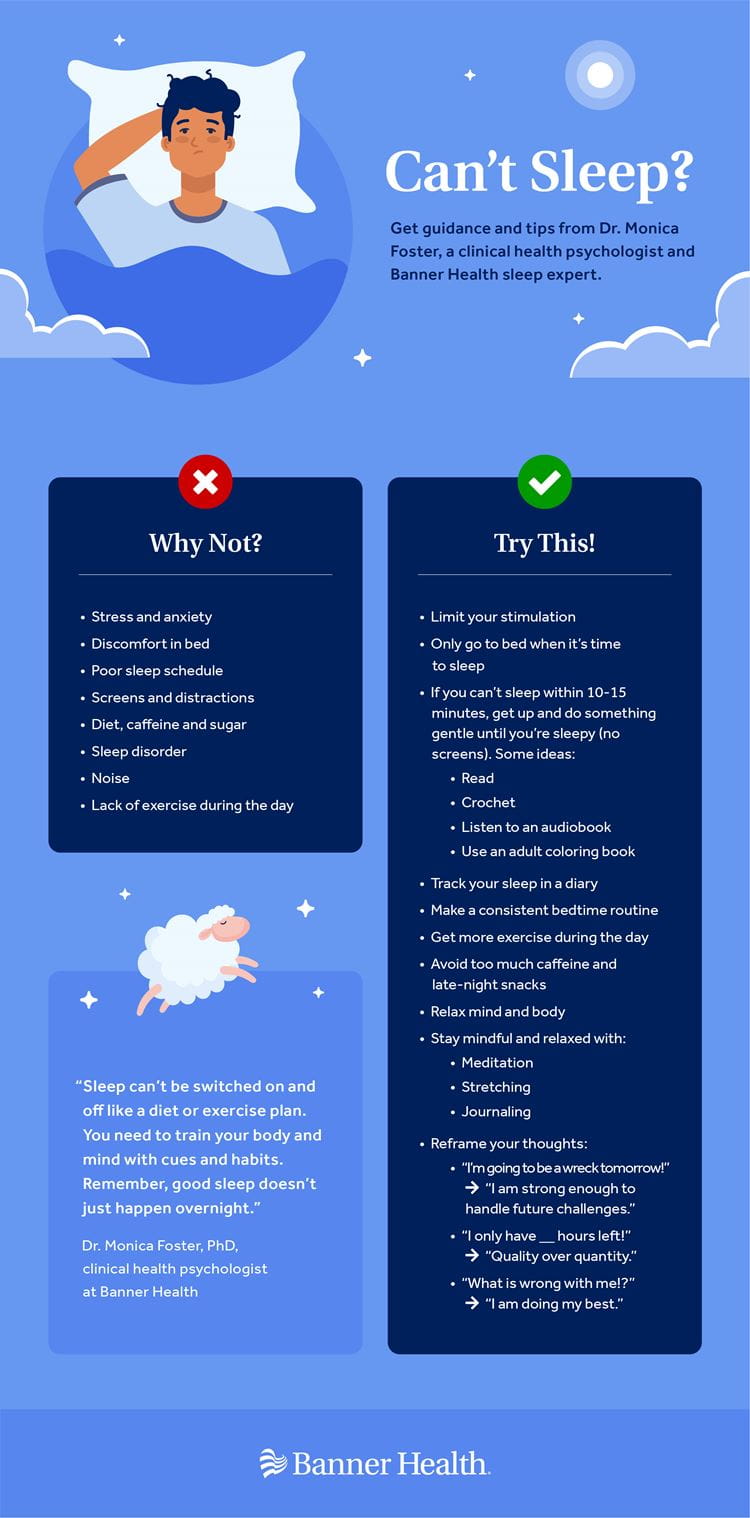Your ceiling fan isn’t that interesting, especially at 2 a.m. If you’re lying awake in your bed, wondering why you can’t sleep, you may be feeling desperate for answers. Take a deep breath, let your body relax into your bed and read these insights from Monica Foster, PhD, a clinical health psychologist and sleep expert with Banner Health.
Check out this helpful infographic to find tips for falling asleep quickly and effectively.
Cognitive Behavioral Therapy for Insomnia (CBT-I)
The solutions in the infographic are based on a proven approach to treating insomnia. “CBT-I is a very effective technique that doesn’t rely on medication and offers long-lasting results,” said Dr. Foster. It explores the way you think, the things you do and how you sleep in order to optimize your thoughts and habits. CBT-I works to reprogram your body and mind with effective triggers to initiate restful sleep.
If CBT-I is not available in your area, you may be able to benefit from a digital CBT-I (sometimes called dCBT-I or dCBT). There are several digital CBT-I applications available online or on your smartphone. The Department of Veterans Affairs offers their own app, called CBT-I Coach, that is appropriate for non-veterans and veterans alike.
What’s keeping you up?
While you sleep, your brain drains toxic proteins and waste. Your mind simply can’t work at full power without proper rest. No matter the cause of your sleepless nights, there is a solution out there to help your sleep phases get back on track.
Do you relate to any of these statements? Click these links to learn more from other Banner Health experts, like Dr. Foster.
- “My partner’s snoring wakes me up.”
- “My job keeps me awake during off-hours.”
- “I’ve always struggled sleeping. What should I do?”
- A Quick Glimpse at Better Sleep Tips
- Waking Up Tired? Try These tips from a Banner Sleep Expert.
- The Surprising Connection Between Your Sleep and Snack Habits
- How Technology Interferes with Sleep
- What the Top Sleep Disorders Do to You
- “I’m busy. How important is sleep, really?”
- Why Does Sleep Matter?
- “Should I consider sleep aids?”
- “I’m uncomfortable at night and I feel restless.”
- “My kids aren’t sleeping well. So, neither am I…”
Is your sleep trouble common? When should you look for help?
“One night or even up to one week of poor sleep is distressing, but it can happen to anyone,” said Dr. Foster. “However, if your nighttime frustration goes on for more than a week, you may need some extra help.” If you have tried some of the habits found in the infographic above, set up a meeting with a sleep specialist to find the root of your problem. If you need help deciding if it’s time to meet with an expert, take our free sleep assessment to determine if you are at risk for sleep apnea.



